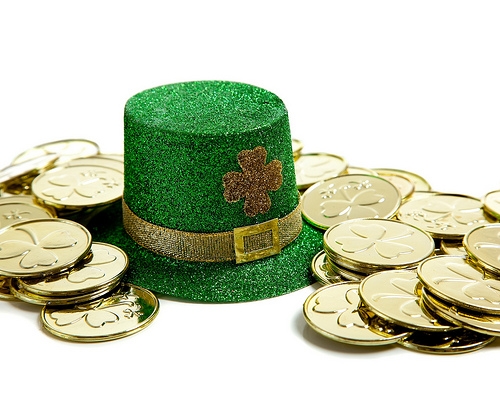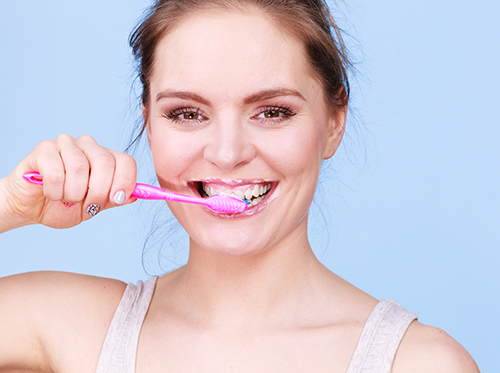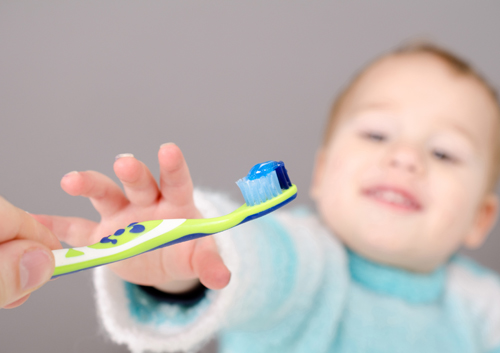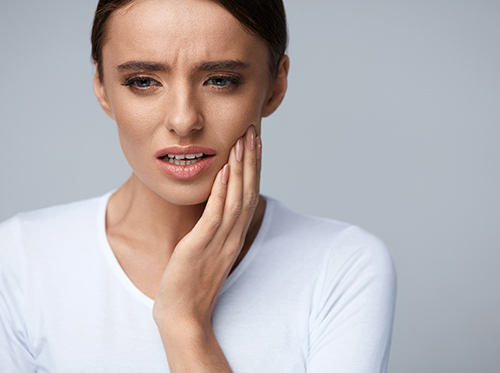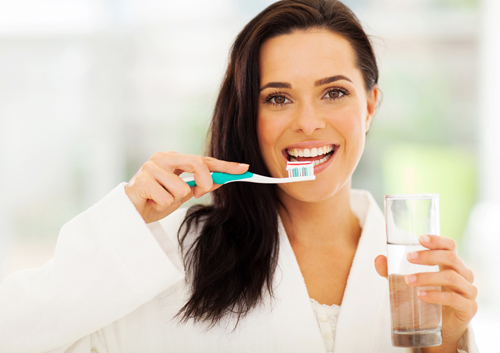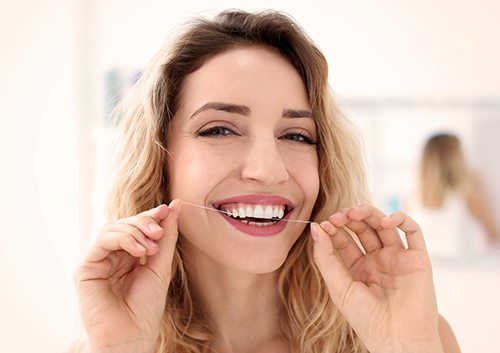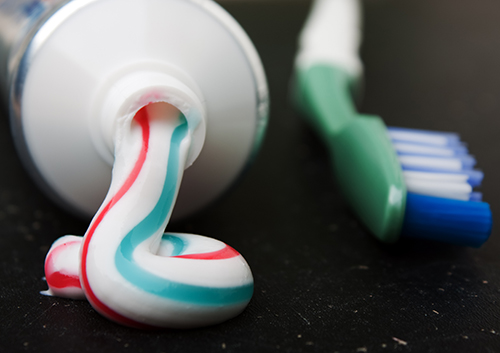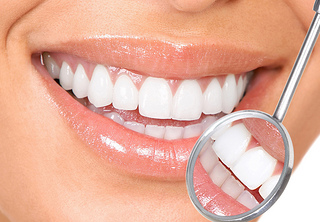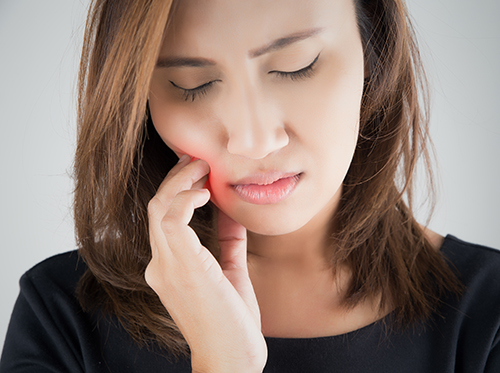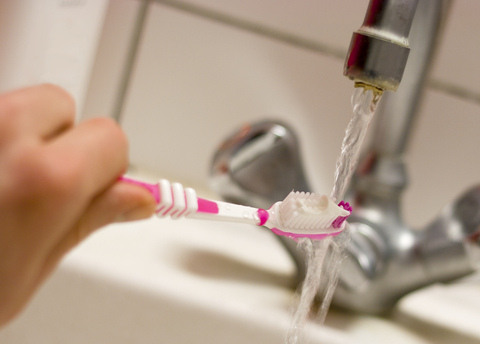
It’s a new year, and a resolution found on many lists is learning to be more mindful about healthy food choices. You might have set some of these goals yourself. Gaining, losing, or maintaining your current weight. More fruits and veggies. Better proteins. Less sugar. Fewer carbs. You want to make this new year your healthiest year yet.
And while you’re making your new and improved shopping list, don’t forget your oral health! Because while brushing and flossing are extremely important, your diet can also have very real benefits for your teeth and gums.
Stronger Teeth and Jaws
We often talk about teeth and bones together, and that’s natural. Calcium and phosphorus, as well as other minerals, make them the strongest parts of our bodies. When teeth lose mineral strength, they are more vulnerable to cavities, and bone loss in the jaw can cause loose or even lost teeth.
Making sure you get the recommended daily amount of the minerals and vitamins you need will help sustain and repair both teeth and bones. A diet rich in calcium, phosphorus, and vitamin D helps build strong bones and promotes bone density. While your teeth can’t create new enamel, minerals that are eroded by acids from plaque and acidic foods can be restored, or remineralized, with the calcium and phosphates in saliva.
Strong teeth and bones need calcium. More than 99% of the calcium in our bodies is located in our teeth and bones. How to make sure we get enough?
Dairy products are the traditional answer. Several servings of milk, cheese, or yogurt each day supply most of our needs. If you can’t eat dairy, though, calcium is also found in other foods, such as salmon, sardines, many dark leafy vegetables, and fortified juices, tofu, and cereals.
Calcium gets most of the attention when it comes to creating strong teeth and bones, but it’s not a solo act. We need phosphorus to make full use of the calcium in our diets.
Proteins like meat, fish, and poultry are good sources of phosphorus, as are beans, nuts, whole grains and dairy.
Vitamin D is a diet essential because it enables us to absorb the calcium and phosphorus that keep teeth and bones strong.
Most dairy and many other foods are fortified with vitamin D, such as cow’s milk, soymilk, orange juice, and cereals. Egg yolks and fatty fish, such as salmon, tuna, and herring, are also a rich natural source of the vitamin.
Healthy Gums
Gum disease is more than just a nuisance. Left untreated, gingivitis (early gum disease) can become periodontitis (serious gum disease). Periodontitis can cause infection, loose teeth, and tooth and bone loss.
Brushing and flossing promote gum health and help prevent gum disease, but your diet plays an important role, too.
Vitamin A is essential for the health and healing of mucous membranes, including gum tissue and the soft membranes in the mouth.
You can get this vitamin directly from animal products such as dairy foods and meats, or it can be formed in the body from beta-carotenes. Think orange when you hit the produce aisle, because foods such as carrots, peppers, pumpkin, squash, and sweet potatoes are a rich source of beta-carotenes.
Vitamin C is one of the so-called “essential nutrients.” These are the nutrients that are necessary for our bodies to function properly, and which can only be supplied in our diets. Vitamin C is vital for healthy gums and soft tissue—in fact, one sign that your diet is deficient in vitamin C is inflamed and bleeding gums.
Citrus fruits, those oranges, lemons, limes, grapefruit, and all their cousins, are a wonderful source of vitamin C, but you have many other flavorful options. Fruits such as kiwis, mangos, papayas, and strawberries are rich in vitamin C. Step over to the vegetable aisle to load up on red peppers, kale, cauliflower, Brussels sprouts, and broccoli—all of which contain more vitamin C per serving than a medium orange!
Fewer Cavities
Plaque thrives on a diet of sugar. Oral bacteria in plaque use the sugars in our food to produce acids. These acids erode enamel and eventually lead to cavities. Limiting your sugar consumption and choosing complex carbohydrates over simple carbs are two ways to reduce your risk of cavities.
The usual suspects—candies, desserts, pastries, sodas—are sugar-filled items you’re familiar with. What might surprise you is the amount of sugar in sports drinks, fruit juices, flavored yogurts, breakfast cereals, and other standard grocery purchases. Checking labels for sugar content is a great way to cut down on unexpected sweeteners.
The refined starches in white bread, white rice, potato chips, and other simpler carbohydrates quickly break down into sugars. This is the kind of nutrition only plaque appreciates.
Instead, fill your cart with complex carbohydrates, which contain important vitamins, minerals, and fiber. Found in foods like whole-grain breads and cereals, legumes, and many vegetables, complex carbs break down slowly for longer-lasting energy.
Of course, these suggestions don’t cover everything on your healthy dental shopping list. We could add magnesium for bone density, vitamin B to prevent oral irritation and inflammation, vitamin K for bone strength, and more. To find out the best options for your healthiest smile, talk to Drs. Arti, Ashi, and Mathew or a member of our Renton, WA team about ideas for improving your daily diet.
Because besides leading to stronger teeth, healthier gums, and fewer cavities, a careful and conscious approach to your food choices has another wonderful benefit—a healthy dental diet is healthy for the rest of your body as well. Just something to be mindful of as we greet the new year!




































































